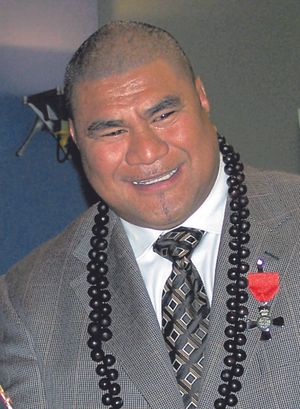Timing the pass – Guest Column
Peter Milsom
It’s encouraging to see the Lord raising up a new generation of pastors. In recent years, two-thirds of evangelical churches in the Associating Evangelical Churches of Wales have called a new pastor. If these men, and others like them, are to exercise fruitful ministries, we need prayerfully to think through some key issues.
An older generation of pastors has faithfully served the Lord over the past 40 years. They have taken a stand for the truth in the face of rampant liberalism in mainline denominations and multiculturalism in our increasingly secular society.
Through their efforts, gospel churches have been established and theologically liberal churches brought back to a biblical foundation and witnessing faithfully to the gospel.
Changing society
However, we live in a rapidly changing society. Whilst holding on to the things which cannot change, we need to recognise that new opportunities and challenges face church leaders. A wise and effective blend of youth and experience is needed.
Those of us who are older must recognise the right time to hand over leadership responsibilities in the local church. Timing is important if a new leadership team is to continue to be effective.
Just as in a game of rugby a well-timed pass ensures an attack’s momentum is sustained, so handing over church leadership at the right time ensures that spiritual momentum is not lost. Younger men need to have the ball put in their hands.
Older believers have a vital role to play in encouraging a new generation of leaders. We need to foster leadership gifts in younger men and give them opportunities to take responsibility for various ministries in the church.
In his latter years Paul was no longer in the frontline of gospel advance, but in this period of his life he was a great encourager of men like Timothy and Titus. His letters were always encouraging churches, even if they had serious problems. And he prayed constantly for them all.
Best polity
I was ordained as a Presbyterian minister and continue to value many aspects of that form of church government. I now have, however, serious reservations about the principle of lifetime eldership. Spiritually mature men inevitably exercise a godly influence in the church throughout their lives, but I do not believe it helpful, in most situations, for such individuals to exercise the office of elder in perpetuo.
In such churches good men can be appointed to eldership in their late twenties and early thirties. But they can continue in leadership for 50-60 years (two to three generations). If they continue this long in eldership, they inevitably end up forming the majority group within an eldership. This results in new elders having only a marginal role.
It also means that the men whom God called to serve his church three generations ago are now struggling to lead it in a world they may not fully understand, and may even feel distanced from.
I remember a conversation with a fellow elder, who told me that as the years had passed he had no non-Christian friends to invite to special gospel services. If a new generation of spiritual leaders are not being recognised by a church, it is almost inevitable that the church will lose its cutting edge and fail to impact the rising generations. This reality may, however, take many years to become apparent to the church.
In most cases, a younger generation is best equipped to reach their own generation. So what can we do to help our churches?
Grace and godliness
We can seek out the best men from the younger generations – men in their twenties, thirties and forties. The main requirements are grace, godly character and godly desire, rather than exceptional gifts without commensurate grace.
We can train them both by teaching and our example. We can give them the ball to run with. We must beware of a natural desire to control, and trust them to take on a variety of ministries. We have all learned and made mistakes from experience; and they need the opportunity to do the same.
We can develop a ministry of encouragement and should beware of a critical spirit. Good men and promising ministries can be destroyed by unwise and ungracious behaviour. As we get older, we can become harder to please.
Mature, spiritual leaders can be a great bulwark against discontentment in the church and model an eagerness ‘to keep the unity of the Spirit through the bond of peace’.
I have a friend who continues to play rugby though he is now in his fifties! He plays in the front row and is wise enough to recognise his role is now a supporting one. He lends his weight to the younger men in the scrum and helps get behind the man with the ball, so that the whole pack will combine to win ground.
Support
The man with the ball if left on his own would not get far, but when his team mates get behind him it’s a different matter. An older man may not score many tries, but he can play a vital role in enabling other men to score.
What an example for mature leaders in the church! What an encouragement to younger pastors and church leaders, now emerging into leadership, as we get wholeheartedly behind them!
The future work of God’s kingdom is in their hands and we want to do everything we can to help them succeed and know greater blessing than anything we have seen or known.
The author is director of UFM Worldwide



















